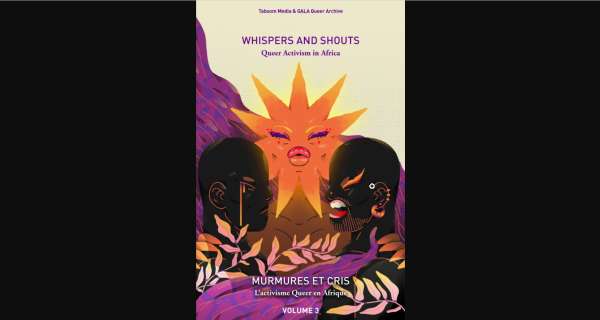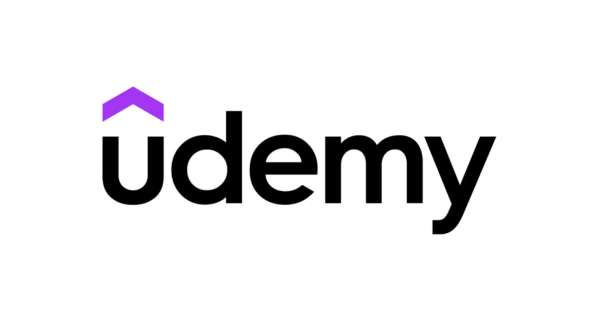Canada. (Photo: Green And Spiegel)

1. Changes to the International Student Program
In January 2024, Immigration, Refugees, and Citizenship Canada (IRCC) announced several major changes to Canada’s international student program. Most notably, IRCC introduced a maximum intake cap of 360,000 international students for 2024. The cap will be implemented by the added requirement of a Provincial Attestation Letter (PAL) from a province or territory that most international students will be required to submit as part of their study permit applications. The intake cap for 2025 will be determined at the end of the year.
In addition, further measures have been implemented to restrict international student intake and ensure a more sustainable student program. The issuance of open work permits to spouses of international students will be limited to spouses of students in Master’s, Doctoral, and certain professional degree programs. Financial eligibility related to proof-of-funds has more than doubled from $10,000 to $20,635. The pre-Covid-era policy of limited hours permitted for off-campus work has been reinstated. Starting Fall 2024, international students are expected to be eligible for a maximum of 24 hours of off-campus work per week. Finally, students enrolled in a program that is a part of a curriculum licensing arrangement will no longer be eligible for Post-Graduation Work Permits.
2. Proposed Amendments to the Citizenship Act
On December 19, 2023, the Ontario Superior Court issued its landmark ruling, declaring the government’s first-generation cut-off rule for Canadian citizenship as unconstitutional. In January 2024, the Federal Government announced that it will not be appealing this decision thereby allowing the ruling to be legislated into law.
As a result, on May 23, 2024, the Honourable Marc Miller, Minister of Immigration, Refugees and Citizenship, introduced Bill C-71 before the Parliament. This legislation seeks to amend the Citizenship Act by automatically conferring Canadian citizenship to any person already born who would have been a citizen were it not for the first-generation limit. The legislation is also anticipated to establish a new framework for citizenship by descent going forward that would allow for access to citizenship beyond the first generation based on a substantial connection to Canada.
The House of Commons is expected to vote on the proposed legislation when Parliament reconvenes in Fall 2024.
3. Changes to the Start-up Visa and Self-Employed PR Programs
The Start-up Visa Program has also undergone significant changes this year in light of record numbers of applications received in recent years. Each Designated Organization can now support a maximum of 10 start-ups with their associated permanent residence (PR) applications. Additionally, intakes under the Self-Employed Persons Program have been paused until January 2027 as processing times increased to over four years. During the pause, IRCC will continue to process applications that have already been submitted under this pathway while also assessing ways to reform the program.
On the other hand, start-ups that are supported by Canadian capital or by business incubators that are a member of Canada’s Tech Network will now enjoy priority processing of their application. Green and Spiegel’s dedicated SUV team specializes in immigration applications under the SUV program.
4. PR on Arrival for Caregivers
IRCC announced new PR on arrival pilot programs for caregivers in June 2024. These programs replace the Home Child Care Provider and Home Support Worker Programs. Caregivers that have been issued a Canadian work permit may now be eligible to receive permanent residence (PR) upon arrival without having to first attain one year of Canadian work experience, as was previously required.
Occupational guidelines have also been relaxed and caregivers will now be allowed to work for organizations that provide temporary and part-time care to persons recovering from an injury or illness. The program is intended to provide caregivers with direct pathways to employment and permanent residence while also fulfilling Canada’s increasing requirements for caregivers.
IRCC has suggested that these pilot programs may be made permanent depending upon intake numbers.
5. Quebec Immigrant Investor Program Open Again
The Quebec Immigrant Investor Program, which was suspended in 2019, has been reopened by the province as of January 2024. This passive-investment based immigration program is open to foreign nationals who are seeking to immigrate to Quebec as an investor and have a net worth of over $2,000,000. Eligible applicants may be issued a work permit to immigrate to Quebec and may subsequently apply for permanent residence.
To be eligible to apply for permanent residence under this program, successful applicants must stay in Quebec for a minimum of 12 months within two years of issuance of their work permit. At least 6 months of this stay must be completed by the investor, and the remaining 6 months may be completed by the investor, or their spouse.
Interested investors must enter into an investment agreement with a designated financial intermediary and expect to make a five-year investment of $1,000,000 plus a non-refundable contribution of $200,000 to Investissement Québec Immigrants Investisseurs inc. At the end of the five-year term, the $1,000,000 will be reimbursed to the applicant without interest.
6. New Innovation Stream Employer-Specific Work Permit
A new work permit pathway was announced by IRCC in March 2024, called the “Innovation Stream”. This program was announced as a part of Canada’s Tech Talent Strategy to embrace the country’s role as an emerging leader in attracting and recruiting global tech talent. Eligible applicants may receive an employer-specific LMIA-exempt work permit if they have a job offer in a highly skilled occupation from an employer who is participating in the Global Hypergrowth Project (GHP). Applicants whose job offer corresponds to TEER categories 0 or 1 may enjoy faster processing of their applications.
Work permits issued under this program can be issued for a duration of 5 years and are employer-specific. This means that applicants will only be authorized to work for the employer listed on their work permit.
7. Crisis Responses
In light of ongoing conflicts across the world, IRCC has announced region-specific temporary immigration policies to facilitate migration of eligible foreign nationals who have been affected by regional conflicts. Recently updated policies include the following:
Sudan
IRCC updated its temporary public policy to facilitate permanent residence of eligible foreign nationals who have been affected by the conflict in Sudan and have family members that are Canadian citizens or permanent residents. The policy aims to provide eligible applicants with a family-based pathway to permanent residence and came into effect on February 27, 2024. This policy will be valid until one year or until 3,250 applications have been received.
Middle East
Temporary measures have been introduced for Israeli nationals, Palestinian passport holders and family members who left Israel or the Palestinian Territories on or after October 07, 2023. Depending upon factors like a person’s place of residence and relation to Canadian citizens or permanent residents, an individual may be eligible for a temporary resident visa or a fee-exempt study/work permit. These measures have been extended until July 31, 2025.
Haiti
Starting May 23, 2024, Haitians with valid temporary resident status in Canada can apply for a fee-exempt study permit, open work permit, or status extension. These policies are intended to support Haitian nationals who are in Canada and unable to return home, and family members of Canadian citizens or permanent residents who have left Haiti.
Iran
Special measures for Iranian nationals with temporary resident status in Canada have been extended until February 28, 2025. These include fee exemptions for extension of temporary resident status applications and for study permit or work permit applications. The policy aims to support Iranian nationals who are currently in Canada and hope to extend their stay. Additionally, Canadian citizens and permanent residents in Iran can now apply for limited-validity Canadian passports, citizenship certificates, and permanent resident travel documents free of cost.
Ukraine
Ukrainian nationals and family members who were authorized to travel to Canada under the Canada–Ukraine Authorization for Emergency Travel (CUAET) were required to enter Canada before March 31, 2024. This year, IRCC has extended some CUAET measures to people who submitted their applications overseas, experienced delays with the processing of their applications, and received a positive decision on or after February 04, 2024. Now, eligible CUAET holders have until July 31, 2024, to travel to Canada and apply for a fee-exempt study or work permit.
8. New Requirements for Mexican Nationals
On February 29, 2024, IRCC announced new requirements for Mexican passport-holders who are travelling to Canada by air and hold a valid US non-immigrant visa or have held a Canadian visa in the last 10 years. Mexican nationals who meet these criteria must now apply for an electronic Travel Agreement (eTA) to travel to Canada. Any pre-existing eTA will be cancelled unless accompanied by a valid work or study permit. Applicants who have already applied for an eTA but have not yet been approved must also reapply for a new eTA or visitor visa.
Mexican nationals who hold a valid US visa may continue to enjoy visa-free travel to Canada.
9. Parents and Grandparents Intake
In 2024, IRCC intends to invite 35,700 applicants from the parent and grandparent PR pool to sponsor their parents or grandparents for Canadian permanent residency. These sponsors will be randomly selected from the pool of applicants who had submitted an Interest to Sponsor form in 2020. If invited, sponsors will receive a deadline by which their sponsorship applications must be received by IRCC. Under this program, IRCC began issuing invitations to sponsor on May 21, 2024.
10. Prioritizing Francophone Immigration
In continuing with its efforts to increase Francophone immigration to Canada and promote the development of minority language communities, IRCC announced its Policy on Francophone Immigration in January 2024. This Policy features a 5-year implementation plan that outlines immigration objectives across various action areas such as admissions targets for French-speaking permanent residents, multi-stakeholder collaboration, and the promotion, selection, and integration of Francophone communities in Canada and abroad. In 2024, IRCC intends to accept 26,100 applications from French-speaking individuals who have applied for permanent residence outside of Quebec.
This Policy builds upon previous immigration policies designed to expand Francophone immigration in Canada such as the language-based draw in the Express Entry system for French-speaking applicants, and the Francophone Mobility Program which was expanded in June last year.
Canadian immigration is constantly changing due to new policies, economic shifts, and global events. To stay informed about these developments and explore your immigration options, we encourage you to contact us for more information.
CREDIT: Peter Salerno , the source article link




















0 Комментарии